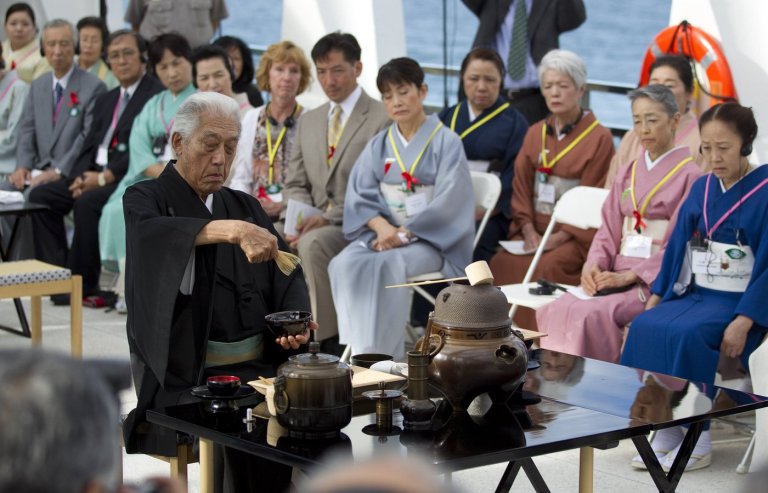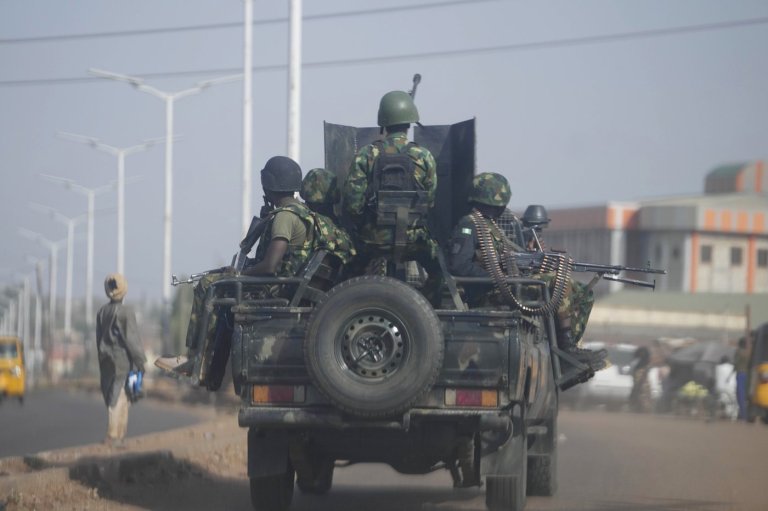Three Boko Haram suicide bombers kill at least 37 in Nigeria
YOLA, Nigeria – The suicide bomber exploded as truckers were tucking into dinner at the bustling marketplace where vendors urged them to buy sugar cane. At least 34 people were killed and another 80 wounded here in Yola, a town packed with refugees from Nigeria’s conflict, emergency officials said Wednesday.
Then two more suicide bombers killed at least three people in the northern city of Kano Wednesday, according to police.
The blasts, with a combined death toll of 37, are the latest by Boko Haram, Nigeria’s Islamic extremists whose 6-year insurgency has killed 20,000 and caused 2.3 million to flee their homes.
The explosions came as President Muhammadu Buhari pressed his campaign against Nigeria’s endemic corruption blamed for hampering the fight against the extremists. Buhari accused a former national security adviser of stealing billions of dollars meant to buy weapons to fight Boko Haram, when soldiers had just a few bullets and the Islamic extremists were rampaging across northeast Nigeria.
Critics long have blamed corruption for the military’s failures, asking how the insurgents can be better armed than Nigerian soldiers despite an annual defence budget of more than $5 billion, supplemented last year by a loan of $1 billion.
Buhari ordered the arrests of several former high-ranking officials allegedly linked to fraudulent and fictitious arms contracts totalling $5.4 billion, one of his advisers, Femi Adesina, said in a statement.
“Thousands of needless Nigerian deaths would have been avoided” if the money had been properly spent, Adesina said.
Boko Haram was named Wednesday as the world’s most deadly extremist group in the Global Terrorism Index. Deaths attributed to Boko Haram increased by 317 per cent in 2014 to 6,644 compared to 6,073 blamed on the Islamic State group. Boko Haram pledged allegiance to IS in March and calls itself that group’s West Africa Province.
The unending violence has torn apart Nigeria’s northeast. In the city of Yola, hit by a suicide bombing for the third time in as many months, relatives searching for missing loved ones converged on the two main hospitals.
“I couldn’t find them at the hospital so I had to come to the mortuary,” said a distraught Musa Adamu. He said his brother, Kamal, was selling sugar cane to truckers and his uncle had gone to look for him.
Adamu found both bodies at the morgue.
Eight children were among the dead, said Yola Specialist Hospital director Dr. Bala Sa’id.
Nigerians ask why the government has been unable to bring an end to Boko Haram’s violence. Many blame corruption and welcome the order for the arrest of Sambo Dasuki, the former security adviser accused of diverting billions that should have equipped the army.
“Beyond corruption, Dasuki should be charged for high treason: Men, women and children died because their armed forces could not defend them,” one angry Nigerian, D. Olusegun, tweeted.
Buhari ordered the arrest of Dasuki, a key adviser to former President Goodluck Jonathan from 2012, and other unnamed high-ranking officials identified in an interim report by a presidential committee investigating arms procurement since 2007. The investigation is part of the fight against endemic corruption that Buhari has waged since taking office in May.
Dasuki is accused of awarding “phantom contracts” to buy 12 helicopters, four fighter jets and munitions worth $2.9 billion that never were supplied, Adesina said. Buhari fired him in July.
Nigeria’s social media buzzed with the news. “The war against Boko Haram under Jonathan was only a money-making machine for Sambo Dasuki, service chiefs and defence contractors,” charged A. S. Aruwa.
Dasuki denied any wrongdoing to the PR Nigeria news agency, saying he was proud that in the final months under his watch Nigeria’s military ousted Boko Haram from its self-declared Islamic caliphate.
That offensive came as Jonathan faced elections. In the year before, soldiers fled before the extremists, allowing them to seize control of a large swath of northeast Nigeria. Soldiers told The Associated Press they were going into battle without food and armed with just 30 bullets each.
Nigeria’s intelligence agency, the State Security Service, continued a 10-day-old siege of Dasuki’s home in Abuja, the capital, on Wednesday despite a Federal High Court order allowing him to travel abroad for medical care. The court had allowed Dasuki bail after he pleaded innocent to other charges of money-laundering, involving more than $423,000 found in cash, and illegal possession of arms seized at two of his homes.
Dasuki, 60, had usurped the role of the Ministry of Defence in procuring weapons. A retired army lieutenant-colonel, Dasuki participated in every coup in Nigeria since the 1980s.
___
Faul reported from Lagos, Nigeria.
Join the Conversation!
Want to share your thoughts, add context, or connect with others in your community? Create a free account to comment on stories, ask questions, and join meaningful discussions on our new site.


















Leave a Reply
You must be logged in to post a comment.